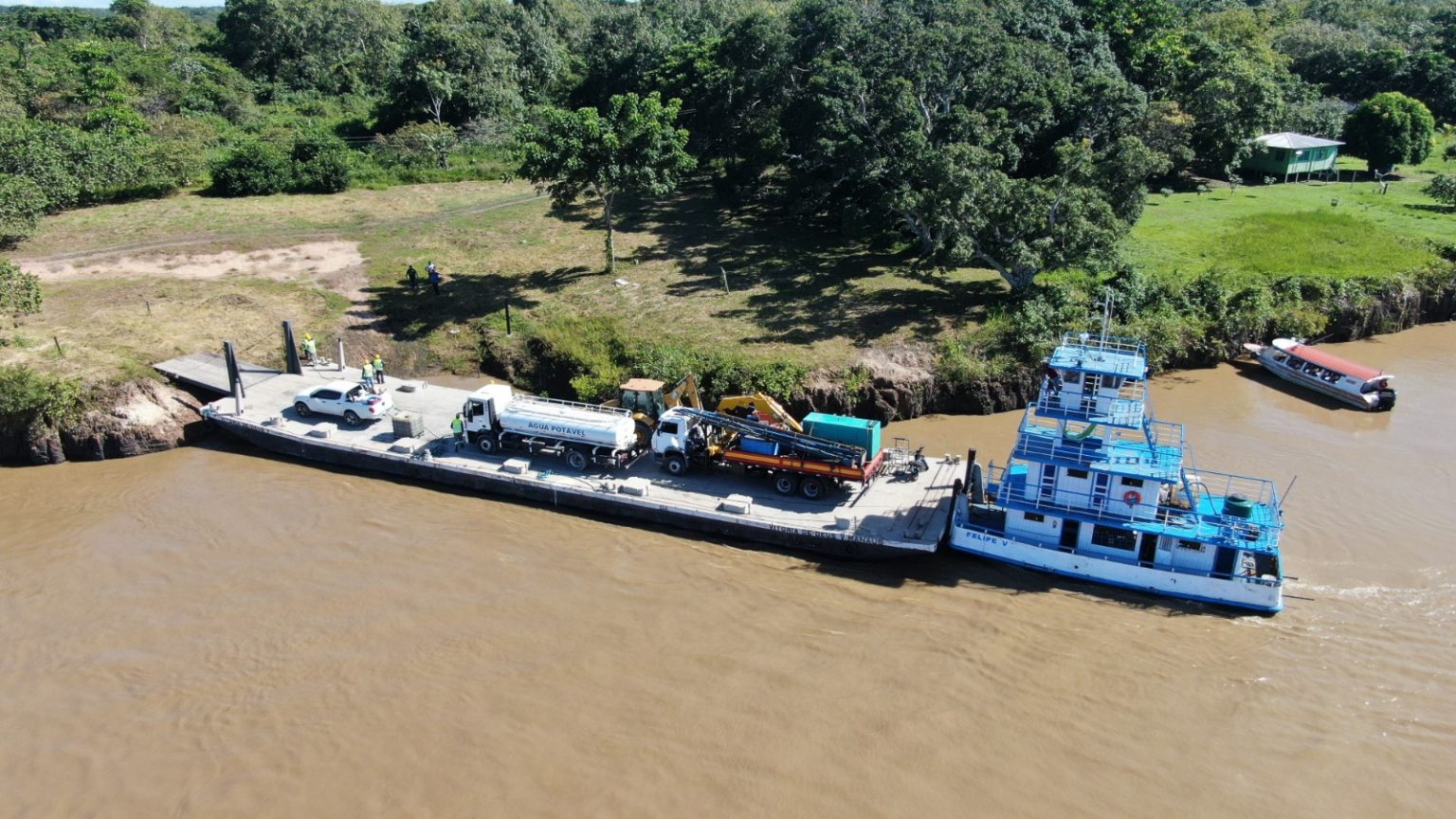Brazil’s agriculture sector is poised for a significant transformation as Brazil Potash Corp. achieves critical milestones in developing its Autazes Potash Project in Amazonas state. The project represents a strategic shift for Brazil, which currently imports more than 95% of its potash requirements, a key ingredient in agricultural fertilizers essential to the country’s farming industry.
The company has secured 21 Installation Licenses throughout 2024 from the State of Amazonas Envi
...
Brazil’s agriculture sector is poised for a significant transformation as Brazil Potash Corp. achieves critical milestones in developing its Autazes Potash Project in Amazonas state. The project represents a strategic shift for Brazil, which currently imports more than 95% of its potash requirements, a key ingredient in agricultural fertilizers essential to the country’s farming industry.
The company has secured 21 Installation Licenses throughout 2024 from the State of Amazonas Environmental Protection Agency (IPAAM), covering vital infrastructure components including mine shafts, processing facilities, transportation routes, and port facilities. These authorizations mark a pivotal regulatory achievement, allowing Brazil Potash to commence full-scale construction activities at the Autazes site.
“These licenses validate our compliance with Brazil’s environmental and technical standards,” said a company representative. “They represent the culmination of extensive regulatory reviews, environmental assessments, and community engagement initiatives.”
The Autazes project, once operational, is expected to supply approximately 20% of Brazil’s potash needs, significantly reducing the country’s dependency on foreign imports. This domestic production capability positions Brazil Potash as an essential contributor to national agricultural security in a country where farming represents a substantial portion of GDP.
In May 2025, Brazil Potash completed site preparation for a dedicated port terminal on the Madeira River, a critical logistical component designed to facilitate efficient transport of potash to Brazil’s central agricultural regions. The company has emphasized sustainability in its logistics planning, projecting that its river barge transportation system could reduce carbon emissions by up to 1.4 million tons annually compared to conventional road transport methods.
Environmental protection measures feature prominently in the company’s development strategy. In April 2025, Brazil Potash signed a contract with Ecology Suporte Ambiental e Engenharia for wildlife rescue and relocation from areas designated for vegetation clearing and construction. These activities are proceeding under approved permits and adhere to guidelines established by Brazil’s national and state environmental agencies, IBAMA and IPAAM.
“Our fauna rescue program represents just one element of our comprehensive environmental management plan,” explained an environmental officer from the company. “We’re integrating ecological considerations throughout the project lifecycle.”
Brazil’s agricultural sector stands to benefit significantly from domestic potash production. The country is one of the world’s largest agricultural exporters, with crops such as soybeans, corn, and sugarcane requiring substantial fertilizer inputs. Market analysts note that reducing dependency on imported potash could help stabilize input costs for Brazilian farmers, who have faced price volatility in recent years due to global supply chain disruptions and geopolitical tensions affecting major potash-producing regions.
Financial developments also appear favorable for the project. Brazil Potash reports securing commercial offtake agreements and access to a $75 million equity line of credit, strengthening its position to advance construction activities. When fully operational, the project is expected to produce 2.4 million tons of potash annually, with potential for expansion in subsequent development phases.
The project’s significance extends beyond Brazil’s borders. Global fertilizer markets have experienced considerable volatility since 2022, with the Russia-Ukraine conflict disrupting supply chains for potash and other crop nutrients. Industry experts suggest that new production sources, particularly in stable jurisdictions like Brazil, could help moderate global price fluctuations while reducing transportation-related carbon emissions associated with long-distance shipping.
As construction activities accelerate, Brazil Potash appears positioned to become a transformative force in Brazil’s agricultural input sector, potentially reshaping the dynamics of the country’s fertilizer supply chain while contributing to greater agricultural self-sufficiency.



16 Comments
Looking forward to seeing how this plays out. Could be a major success story for Brazil.
Brazil’s agriculture sector is massive—this project could be a game-changer if executed well.
Impressive regulatory hurdles cleared. Hope the environmental impact is managed well long-term.
The project sounds promising, but has there been any independent verification of these claims?
Brazil Potash’s licenses show strong support from local regulators—good sign for investors.
This project could reshape Brazil’s agriculture sector. Exciting developments ahead.
Good to see Brazil investing in domestic agriculture infrastructure. Let’s hope it pays off.
Potash demand is likely to grow—will supply keep up with the Autazes project alone?
This is a huge step for Brazil’s food security. Potash self-sufficiency will insulate farmers from global price shocks.
Brazil’s potash import dependency is a significant vulnerability—this project is a welcome step.
What impact will this have on existing global potash suppliers like Russia and Canada?
The environmental approvals process in Brazil can be tough. Kudos to Brazil Potash for navigating it.
What’s the projected timeline for Autazes to reach full production capacity? Any setbacks to watch for?
Brazil finally reducing its potash imports? About time. The agriculture sector needed this boost.
Interesting that community engagement was a key part of this approval. Usually, that’s just lip service.
20% of Brazil’s potash needs is a decent start, but will this project scale further to compete globally?